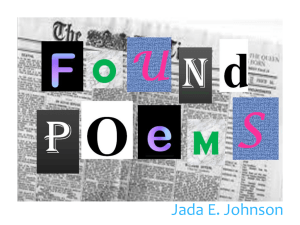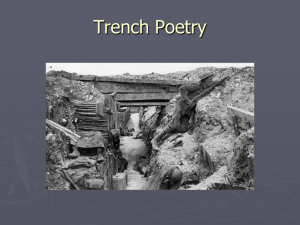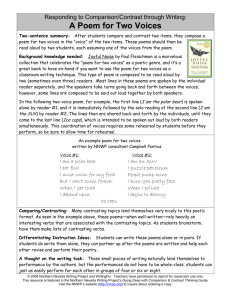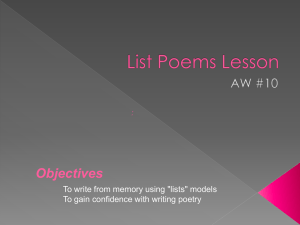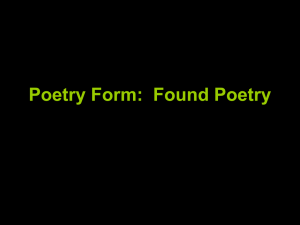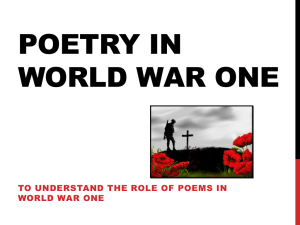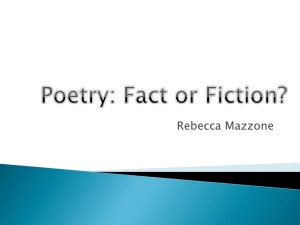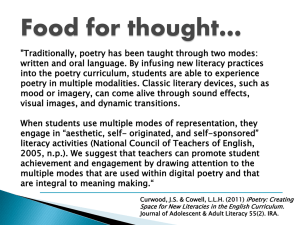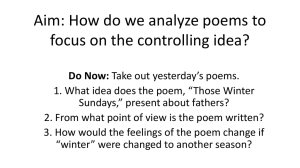Two Voice Poems: - The San Marcos Writing Project Wiki
advertisement
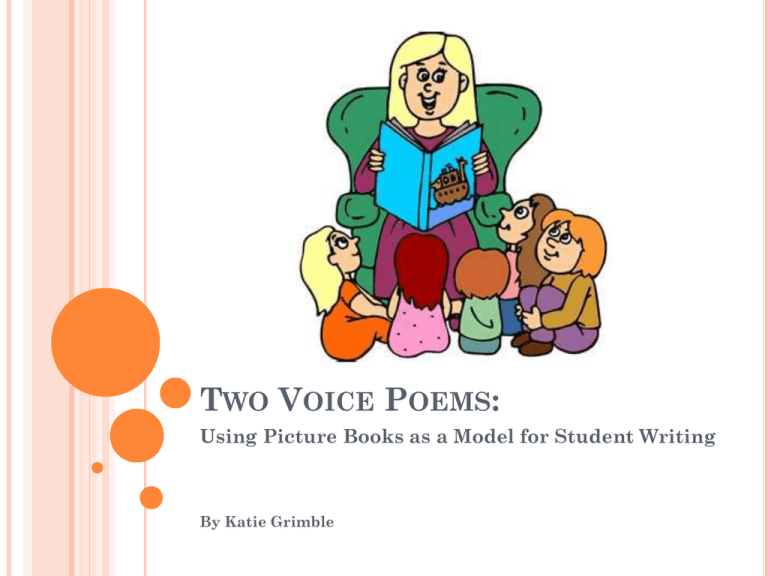
TWO VOICE POEMS: Using Picture Books as a Model for Student Writing By Katie Grimble MY JOURNEY PICTURE BOOKS AS MODELS How I Spent My Summer Vacation by Mark Teague (Fictional Narrative) More Parts by Tedd Arnold (Idioms) Rainbow Fish by Marcus Pfister (solving a problem, character development) The Butter Battle Book by Dr. Seuss (satire) TIPS FOR USING PICTURE BOOKS AS MODELS Read it multiple times Use highlighter tape Make or purchase extra copies Have multiple examples Caution students not to copy the story, just imitate the structure (or other intended element) ONCE UPON A ROYAL SUPERBABY Voice (Read without pictures and have students guess who is telling the story) Conflict Development Character Development Point of View (3rd person omniscient narrator) Two-Voice Poetry REREAD—WHAT TO LOOK FOR VOICE How do you know who is speaking if you aren’t looking at the pictures? What can you infer about the two narrators from the stories they tell? How do they incorporate their own personality into the story without incorporating themselves? WHAT IS TWO VOICE POETRY? Two-voice poetry is written for two people to perform. The poetry usually has two columns—one for each person who is reading the poem. Each person reading the poem reads the text in one of the columns. Sometimes, the poet wants the two readers to say something at the same time; so the poet writes the words on the same line in each column. These poems often sound like a dialogue for two people. (ReadWriteThink) After students compare and contrast two items, they compose a poem for two voices in the “voice” of the two items. These poems should then be read aloud by two students, each assuming one of the voices from the poem. (WritingFix) EXAMPLES OF TWO VOICE POEMS YouTube - Immigration Two Voice Poems YouTube - Joyful Noise: Poems for Two Voices Pine City High School Speech YouTube - Joyful Noise - A Poem for Two Voices (7:18 Book Lice) YOUR TURN… Find a partner and use a prewriting strategy to identify the similarities and differences between the two of you. Narrow your topic (see next slide) Write your poem using the three column organizer Read out loud with your partner Revise Practice Publish (see pub options on last slide) SUGGESTIONS FOR VOICES Voices Pet and owner Student and teacher Teacher and principal Parent and child Animal and hunter Shoe and foot Artist and critic Republican and democrat Mac and PC Topic Work ethic Religion Power Hobbies Politics Rules Friendship Punishment Money Mistakes PREWRITING WEBS Use the Venn diagram web to the left (or something similar) to plan for your two voice poem. Consider the voices and topics listed on the last slide. Voice #1 Both Voices Voice #2 OTHER USES FOR TWO-VOICE POEMS Character v. Character Modern v. Historic Two different selfs (Dr. Jekel and Mr. Hyde) Self v. Character Compare race, gender, age, etc. Self v. Original Character Before and After (Lady Macbeth in Act 1 v. Act 3) Create an I-movie or Windows Movie Maker video to share your writing. Create an accompanying artistic representation for your work. Create a storybook that mirrors the focus element but is based on a timely topic. Dramatize your writing in a live presentation for the class. Conduct further research and become an expert on your topic. Create a poster to showcase what you learned. PRODUCT OPTIONS AND EXAMPLES


